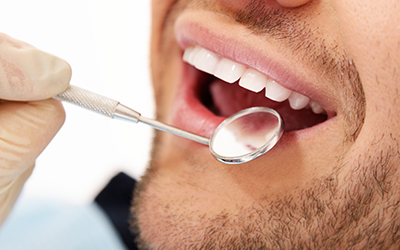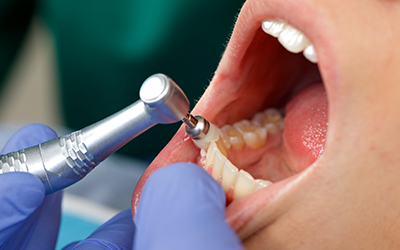Posted on Feb 15, 2016
How Stress Can Impact Your Oral Health
A+ A- A Main Content
Even if you aren’t able to identify exactly how much stress you’re feeling, your dentist can tell! It turns out your oral health doesn’t keep any secrets when it comes to the stress you may be feeling. Below are a few stress-related dental conditions to keep an eye out for:
Bruxism
Bruxism is the technical term for when you clench your jaws or grind your teeth. This clenching and grinding will often happen subconsciously and is a key indicator that you may be under stress. If you’re feeling stress, anger, frustration or anxiety, you may begin to exhibit the symptoms of bruxism without even realizing it.
Since bruxism isn’t something you may be aware of, you should be aware of the symptoms and talk to your dentist if you think you might have bruxism. Below are a few symptoms to keep an eye out for:
- Frequently waking up with headaches
- Pain or a clicking sound when you move your jaw
- Your teeth begin to feel increasingly more sensitive
- Tips of your teeth may appear flattened
Luckily, bruxism can be easily treated by wearing a night guard to bed and finding ways to help manage your stress.
Gum Disease
Researchers at the University of North Carolina have discovered that stress plays a large role in the development of gum disease in adults. In addition, it was also discovered that the more intense the stress was, the more severe the case of gum disease. The researches also found that people who were dealing with financial stress were at the highest risk to develop gum disease.
Like anything else, the sooner your dentist can catch your gum disease, the easier it will be to treat. It’s important to make an appointment immediately if you suspect you may have gum disease. Some of the symptoms include:
- Red or swollen gums
- Gums that bleed during and after brushing your teeth
- Receding gums
- Bad breath that won’t go away
- Shifting or loosening teeth
Gum disease can be treated and managed, but it’s important to get evaluated by your dentist if you believe you may have gum disease.
Canker Sores
Canker sores (which are also called mouth ulcers) will usually show up inside the mouth. They are not contagious, but can be caused by trauma inflicted on your mouth. This could include brushing too vigorously, biting or chewing the inside of your cheeks, or accidentally biting your tongue. However, like everything else on this list, canker sores can also be caused by stress.
Pain from a canker sore will usually only last a few days and the sores themselves should heal on their own in a week or two. However, if your canker sores are larger than normal, return regularly, and cause pain for more than a few days, you may need to see your dentist in order to get a prescription mouth rinse or ointment.
In the end, the most important way to care for your mouth during times of stress is to consistently practice good oral hygiene. Make sure you’re brushing twice a day with fluoride toothpaste, flossing daily, and receiving regular dental cleanings and exams every 6-12 months. Making sure to come to our office regularly can be the first line of defense in catching and treating stress-related dental disorders early on.
To make an appointment with Dr. Preston Polson, please contact Meadows Family Dental, located in Castle Rock, CO.
















 (303) 660-5576
(303) 660-5576 smile@meadowsfamilydentistry.com
smile@meadowsfamilydentistry.com 3740 Dacoro Lane, Suite #115
3740 Dacoro Lane, Suite #115